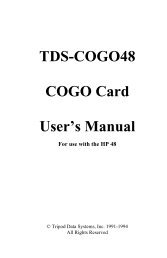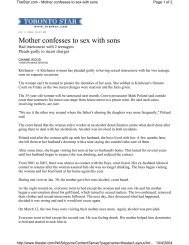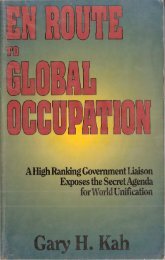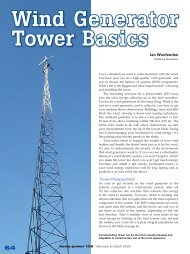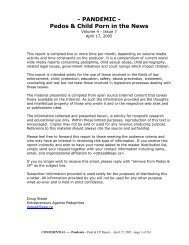G. Edward Griffin - The Fearful Master - PDF Archive
G. Edward Griffin - The Fearful Master - PDF Archive
G. Edward Griffin - The Fearful Master - PDF Archive
Create successful ePaper yourself
Turn your PDF publications into a flip-book with our unique Google optimized e-Paper software.
operations within their territory. As mentioned earlier, Tshombe wanted a federal union<br />
and local autonomy somewhat similar to that in America.<br />
Commenting on his vision for the future, Tshombe explained:<br />
Katanga is nearly as large as France. Our people have a different<br />
history, traditions, and outlook from those of the Congo. Every people<br />
has the right to its own self-determination. <strong>The</strong>re is no reason why we<br />
should be exploited by the Congo. Because we were in the past is no<br />
reason why we should be in the future. 4 [Italics added.]<br />
This attitude was even written into the newly established constitution. Article I read: "<strong>The</strong><br />
State of Katanga adheres to the principle of the association with the other regions of the<br />
former Belgian Congo, provided they themselves are politically organized with respect to<br />
law and order." 5 As we have already seen, however, the central government had other<br />
plans--and so did the United Nations.<br />
As to what those intentions were, one cannot readily find them in the high-sounding<br />
phrases and self-righteous platitudes of official United Nations proclamations. <strong>The</strong>y are<br />
there, but one has to be experienced in the highly complex art of reading bureaucratese.<br />
While most human beings communicate with each other to convey ideas, politicians are<br />
prone to use language as a means of concealing ideas. An example of this planned<br />
deception is the blatant contradiction between the United Nations public pronouncements<br />
regarding Katanga and its actual performance.<br />
On July 14, 1960 (the same day that the Security Council passed the first resolution<br />
condemning Belgium and authorizing the use of United Nations troops in the Congo), and<br />
again on July 20, Dag Hammarskjold stated the UN's position:<br />
1. <strong>The</strong> United Nations force could not intervene in the internal affairs of<br />
the Congo.<br />
2. It would not be used to settle the Congo's constitutional issue.<br />
3. It would not be used to end Katanga's secession. 6<br />
In July, Ralph Bunche (as special United Nations representative for Hammarskjold) told<br />
Tshombe that the United Nations force "has received strict instructions not to intervene in<br />
the internal politics of the country." 7 On August 9 the Security Council passed another<br />
resolution which "reaffirms that the UN Congo force will not be a party to, or in any way<br />
intervene in, or be used to influence the outcome of, any internal conflict, constitutional or<br />
otherwise." 8 In speaking specifically about Katanga's secession, Dag Hammarskjold said:<br />
This is an internal political problem to which the UN as an organization<br />
obviously cannot be a party. Nor would the entry of the UN force in<br />
Katanga mean any taking of sides in the conflict to which I have just<br />
referred. Nor should it be permitted to shift the weight between<br />
personalities or groups or schools of thought in a way which would<br />
prejudice the solution of the internal political problem. 9<br />
Nothing could have been plainer than that. Yet immediately United Nations troops began<br />
to move into position for entry into Katanga. Tshombe was leery of the whole operation


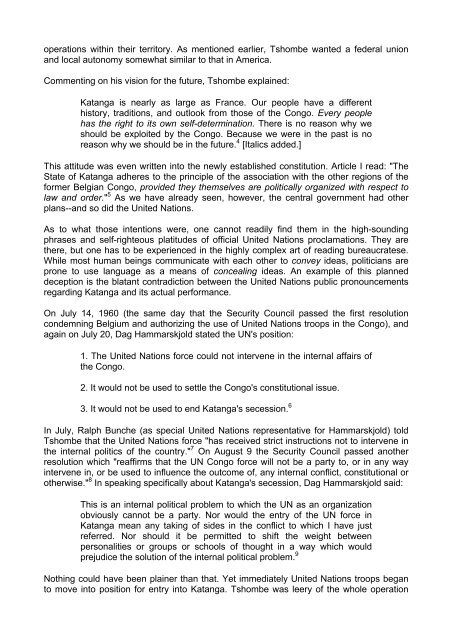
![Robert T McQuaid [rtmq@stn.net] Sent: Friday, October 29, 2004 12 ...](https://img.yumpu.com/51070071/1/190x245/robert-t-mcquaid-rtmqstnnet-sent-friday-october-29-2004-12-.jpg?quality=85)

